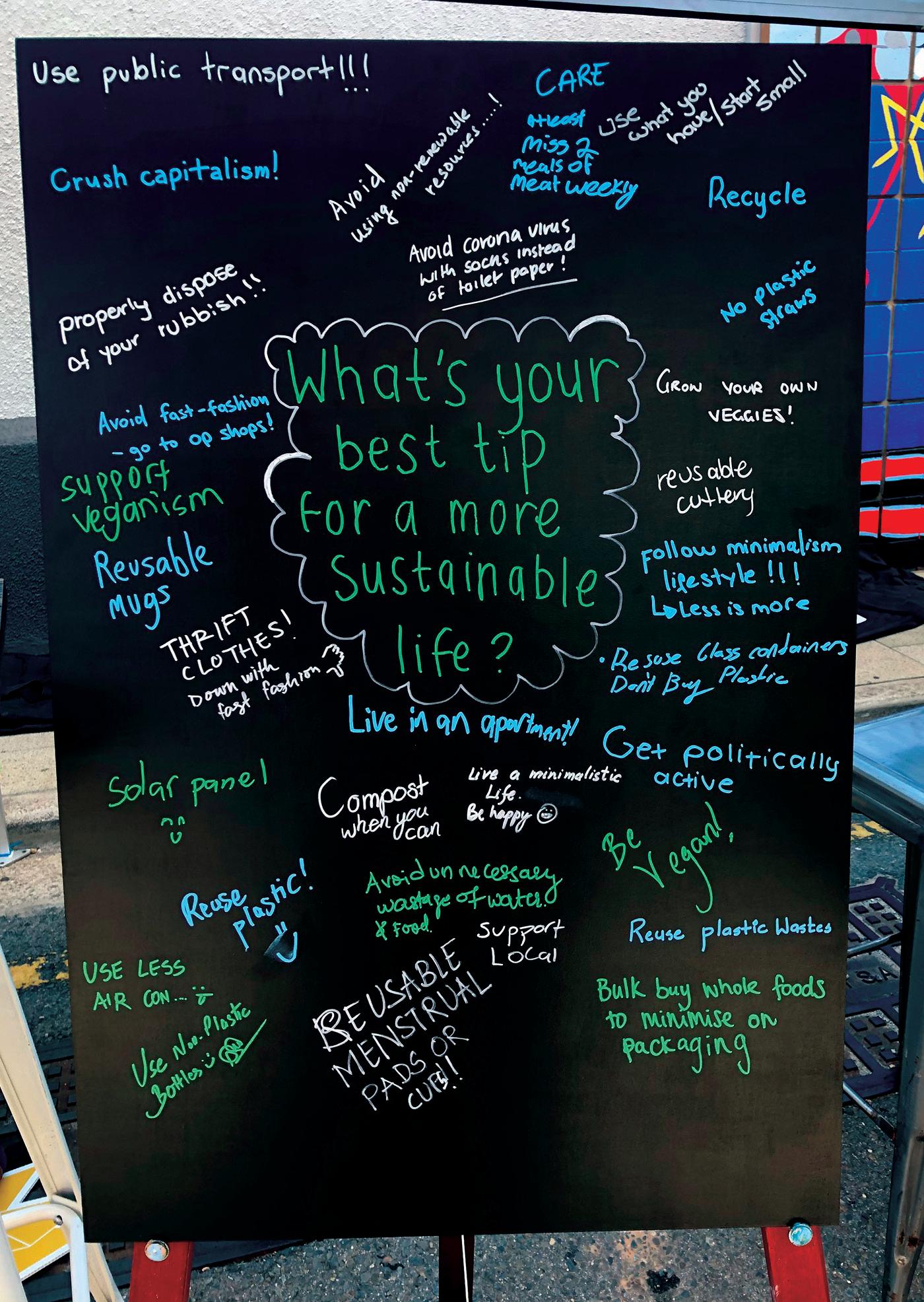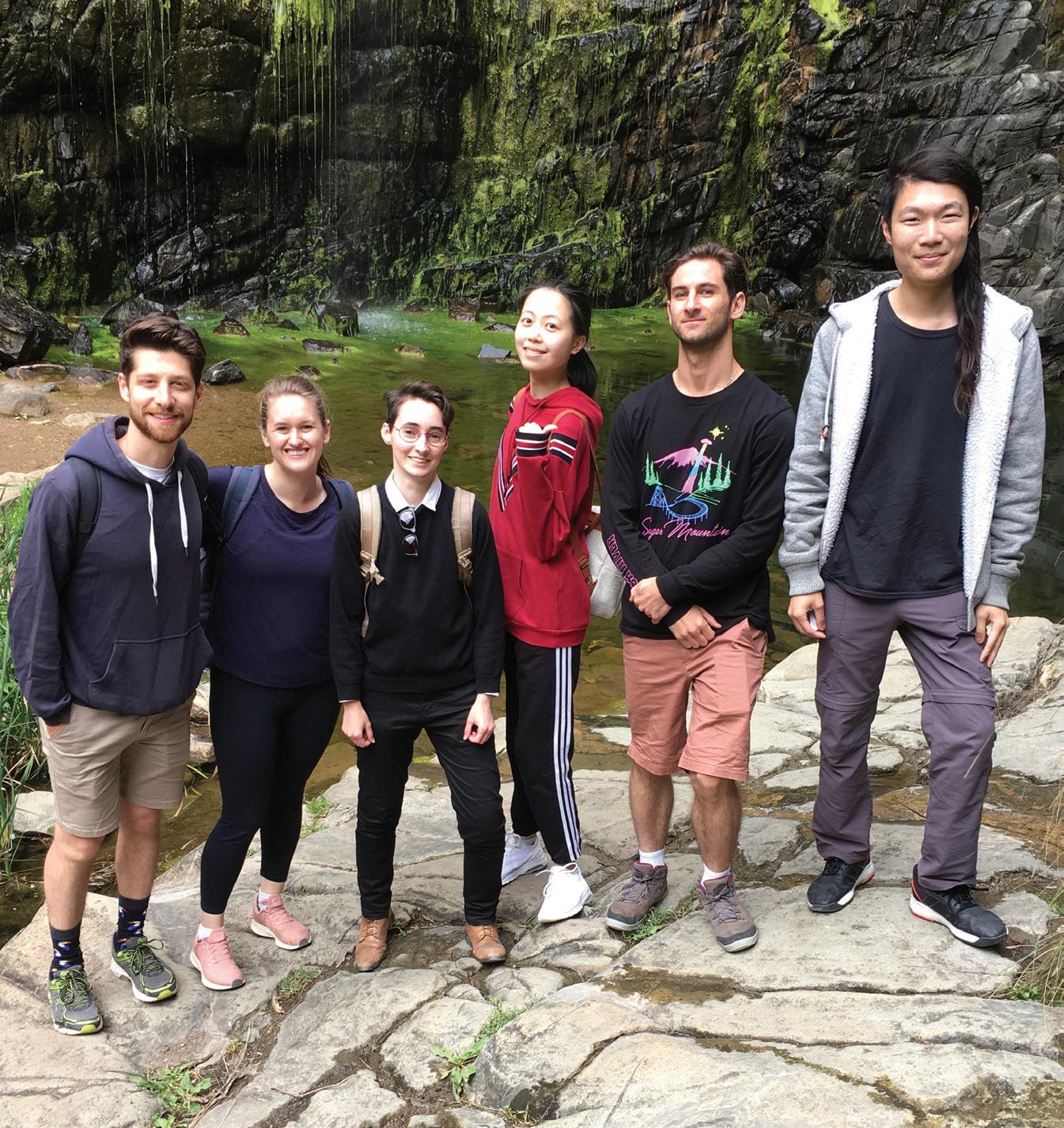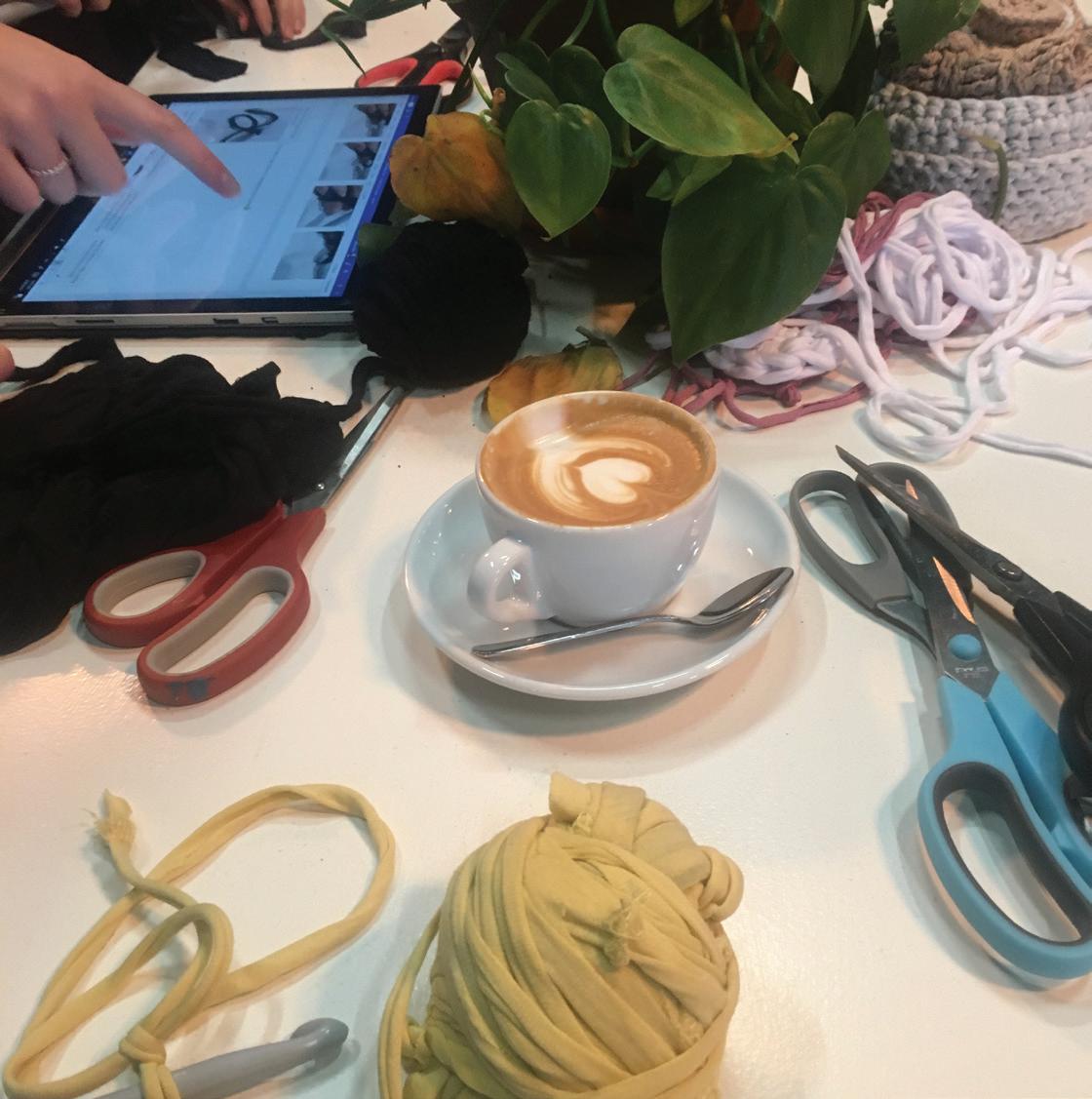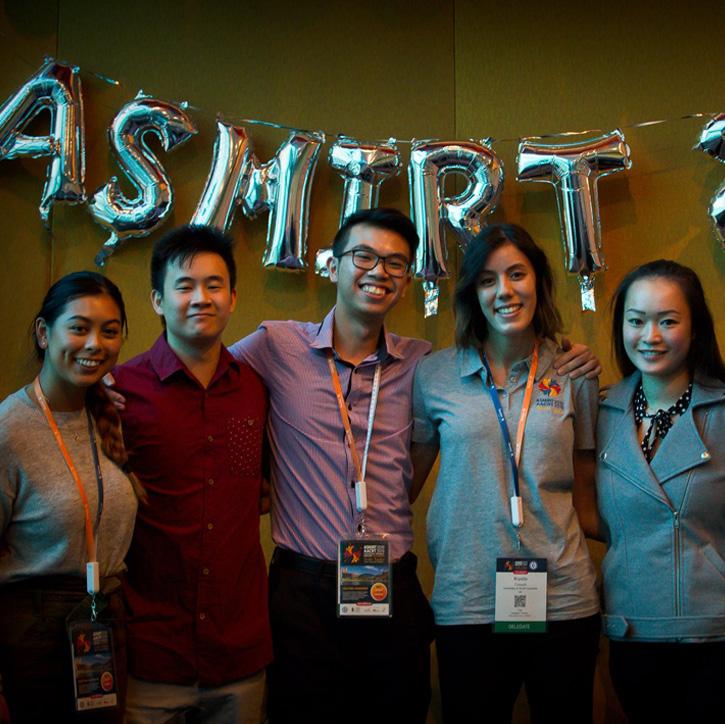
6 minute read
Clubs Feature: The Sustainability Collective
Club Feature: Student Sustainability Collective
Who are the Student Sustainability Collective?
What are the Student Sustainability Collective’s goals?
How can people continue to care and advocate for a sustainable future from the confines of their homes?
We’re a group of students committed to promoting the benefits of social, economic and environmental sustainability and sustainable practices to UniSA students. Our executives are based across the metro campuses studying a wide variety of degrees, so we all have different skills and experiences that we contribute to our team. We also represent students on the UniSA Business School Sustainability Committee. Our meet-ups have been at places that follow our values and promote social, environmental and economic sustainability in some way including cafes, pubs, and even conservation parks.
We want students to embrace sustainable practices in their everyday lives. It would be fantastic to see UniSA be a leader in sustainability and make that a core aspect of student life. Among our goals is to fight food waste, expand recycling programs on campus, promote and support sustainable campus initiatives such as the Community Gardens, and learn the benefits of native Australian plants. Creating an environment for like-minded people to interact with each other and work collaboratively so that we can all share knowledge is crucial so that everyone can be included. This is why we have regular discussions with UniSA staff on how we can make this a reality on our campuses. USASA has also been very supportive of our mission, and has adopted practices like partnering with local businesses, ditching single use items like plastic cutlery, and not using balloons at events.
Make changes towards being sustainable one step at a time, and encourage the people around you to do the same. Don’t be preachy about it and don’t force others to do something they can’t. Not everyone can adopt the same practices in their lives, but we all need to contribute what we can where it’s reasonable to do so.
Go local. If you need to get out of the house for essentials, leave the car at home if you can and try to walk or cycle to your local shops if possible. Try and buy products made locally too. The particle emissions from vehicles used for transport is a major contributor to greenhouses gases and air pollution. Walking and cycling are great for both our own and the planet’s health. Only get deliveries if they’re absolutely essential and you can’t get it nearby. Grow your own produce at home if possible. If you have time, contact brands whose products you like and encourage them to adopt more sustainable packaging. It’s absolutely vital that we reduce our plastic usage to as close to zero as possible.
If you have very young children (or are planning to become a parent), reusable cloth nappies are one of the best things you can do for the planet, as disposables are one of the most common forms of plastic waste in landfill. Depending on the type of plastic they’re made from, they’ll either take up to hundreds of years to fully decompose, or will simply break down into ever smaller pieces which will remain in the environment forever. We owe it to future generations that they be able to live on an habitable planet. Reusables are easy to take care of - just give them a cold rinse and prewash, and then another wash with hot water when putting them through your washing machine. We promise the ick factor goes away pretty quickly! There are some biodegradable disposables out there, but currently aren’t an affordable option for many parents, whereas cloth is a small upfront cost and last years.



Can you give us some ideas for sustainable activities that people can do from home?
How can we get involved with the Student Sustainability Collective?
What is one sustainable act that if we all did it would change the world?
Brush up on those cooking skills; it’s tempting to order heaps of Uber Eats now that we can’t go out to our favourite places, but cooking your own meals, especially using home-grown ingredients, costs less money and cuts down on carbon emissions used by vehicles and industrial farms to get produce to shops.
Repair your clothes; don’t throw a shirt away just because a button fell off. There’s heaps of easy DIY sewing tips online. But if an item of clothing isn’t salvageable, they can always be turned into cleaning rags, or carefully cut into a single long strip of fabric and used as crocheting yarn.
Upcycle; if you’re up for a creative task and want to develop some design thinking and innovation skills, find a new use for an old item by bringing them back to life through a new use like using a broken coffee mug as a candle holder or worn out shoes for plant pots.
Grow a veggie patch; seeds and seedlings are in short supply at shops, but you can regrow some fruits and vegetables from their seeds. If you’re new to gardening, start off with easy to care for plants like peas and tomatoes. The green stems of spring onions can be regrown from bulbs if kept in a glass of water and then replanted.
Start composting; it may seem challenging, but it doesn’t have to be if you’re ready to get creative. There’s many adaptive ways to compost: you can use anything from yoghurt tubs up to laundry hampers as bins. Composting is great for your plants and our earth. Once you’ve got it started it does the work for you, and will only need the occasional tending to and feeding with more plant and food scraps. Start your compost with 3 easy steps, which you can find a video about on our Facebook page.
We’re really active on our Facebook and Instagram social media. Feel free to send us a message or email, as we’re always available for a chat and happy to give some tips on how to be more sustainable. If you have a vision of a more sustainable future and would like to work towards some achievable short-term goals with other passionate people then please help us grow by joining us. Once we’re back on campus, come say hi to us if you’re ever at the community gardens at City West and Mawson Lakes, you might catch one of us checking up on the herbs or having a nice lunch outdoors. We’re really keen to physically get back on campus and catch up with everyone for a produce swap and maybe even go for a group mushroom forage in Kuitpo Forest.
Choose a vegetarian or vegan option when meal planning for the week. Being vegan isn’t achievable for some people and that’s okay! Reducing meat intake is a great sustainable change, as animal products aren’t essential in a healthy diet (as millions can attest to). Fresh fruits and vegetables can be sourced cheaply from places like the Adelaide Central Markets on Saturday afternoons, and another way is to become friends with your neighbours and swap meals for produce. ☐
USASA Leadership & Club Grants
Launch your ideas.

Have an exciting idea for your club or campus that needs a kick-start? Apply for grants ranging from $500 - $2,500 each month. Find out how to apply at USASA.sa.edu.au/Grants










